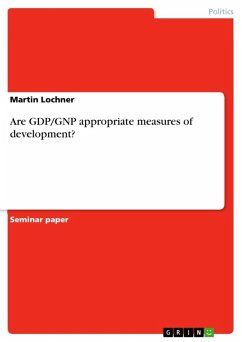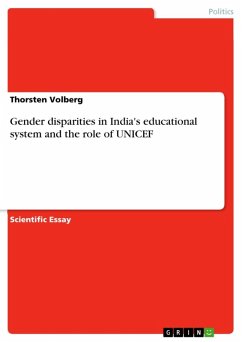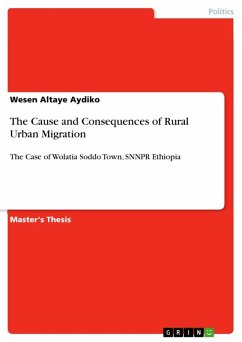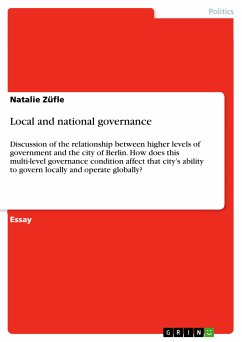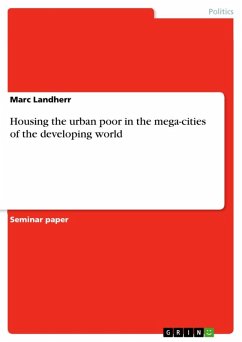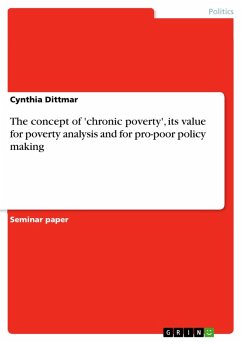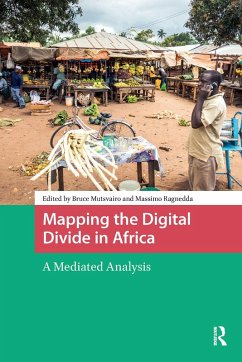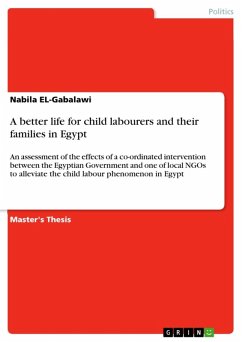
A better life for child labourers and their families in Egypt (eBook, ePUB)
An assessment of the effects of a co-ordinated intervention between the Egyptian Government and one of local NGOs to alleviate the child labour phenomenon in Egypt
Versandkostenfrei!
Sofort per Download lieferbar
Statt: 52,95 €**
39,99 €
inkl. MwSt. und vom Verlag festgesetzt.
**Preis der gedruckten Ausgabe (Broschiertes Buch)
Alle Infos zum eBook verschenkenWeitere Ausgaben:

PAYBACK Punkte
0 °P sammeln!
Master's Thesis from the year 2008 in the subject Politics - Topic: Development Politics, grade: Merit, University of Birmingham (International Development Department (IDD)- School of Public Policy), course: International Development, language: English, abstract: The perception of child labour in Egypt like in any other place in the world has been changed dramatically in recent years. The current debates about child labour have conceived child labour as vital element for the survival of poor families. Most of the traditional interventions were focusing on combating child labour with no conside...
Master's Thesis from the year 2008 in the subject Politics - Topic: Development Politics, grade: Merit, University of Birmingham (International Development Department (IDD)- School of Public Policy), course: International Development, language: English, abstract: The perception of child labour in Egypt like in any other place in the world has been changed dramatically in recent years. The current debates about child labour have conceived child labour as vital element for the survival of poor families. Most of the traditional interventions were focusing on combating child labour with no consideration to the living circumstances of the child labourers, controversially the new approaches by different national and international stakeholders started to adjust their interventions to be appealing to the circumstances of child labourers and their families. The main theme of this dissertation is to examine the effectiveness of one of these interventions and its sustainability. For that purpose, a field research in Cairo, the capital of Egypt has been conducted. The aim of the field research is to analyse one of the interventions that implemented through coordination between the Egyptian Government through the National Council of Childhood and Motherhood and one of the Egyptian NGOs Abo Soud Social Development Association NGO. This Egyptian NGO carried out a child labour oriented project in partnership with an Italian NGO Cooperation Internazionale Sud Sud through Children at Risk Programme that funded by the European Union. Using different quantitative and qualitative methodologies, the researcher tried to obtain the perception of child labourers and their families about the implemented activities in order to investigate whether the children's rights and best interests were considered in the course of designing and implementing the activities of the project. This dissertation challenges the argument that child labour became essential for the survival of poor families, thus it cannot be eradicated. Through the assessed intervention, the researcher tried to investigate the effectiveness of the withdrawal of child labourers from the hazardous works, while poor people cannot survive without child labour. The researcher tried also to examine the sustainability of the provision of financial support for child labourers' families as a solution to reduce the incidence of child labour. Moreover, education as one alternative to reduce child labour was assessed. It was argued through the study that none of the interventions, which directed to enhance the livelihoods of child labourers and their families as well as children' working conditions, would be sustainable unless the children's needs, rights and best interests are endorsed.
Dieser Download kann aus rechtlichen Gründen nur mit Rechnungsadresse in A, B, BG, CY, CZ, D, DK, EW, E, FIN, F, GR, HR, H, IRL, I, LT, L, LR, M, NL, PL, P, R, S, SLO, SK ausgeliefert werden.




